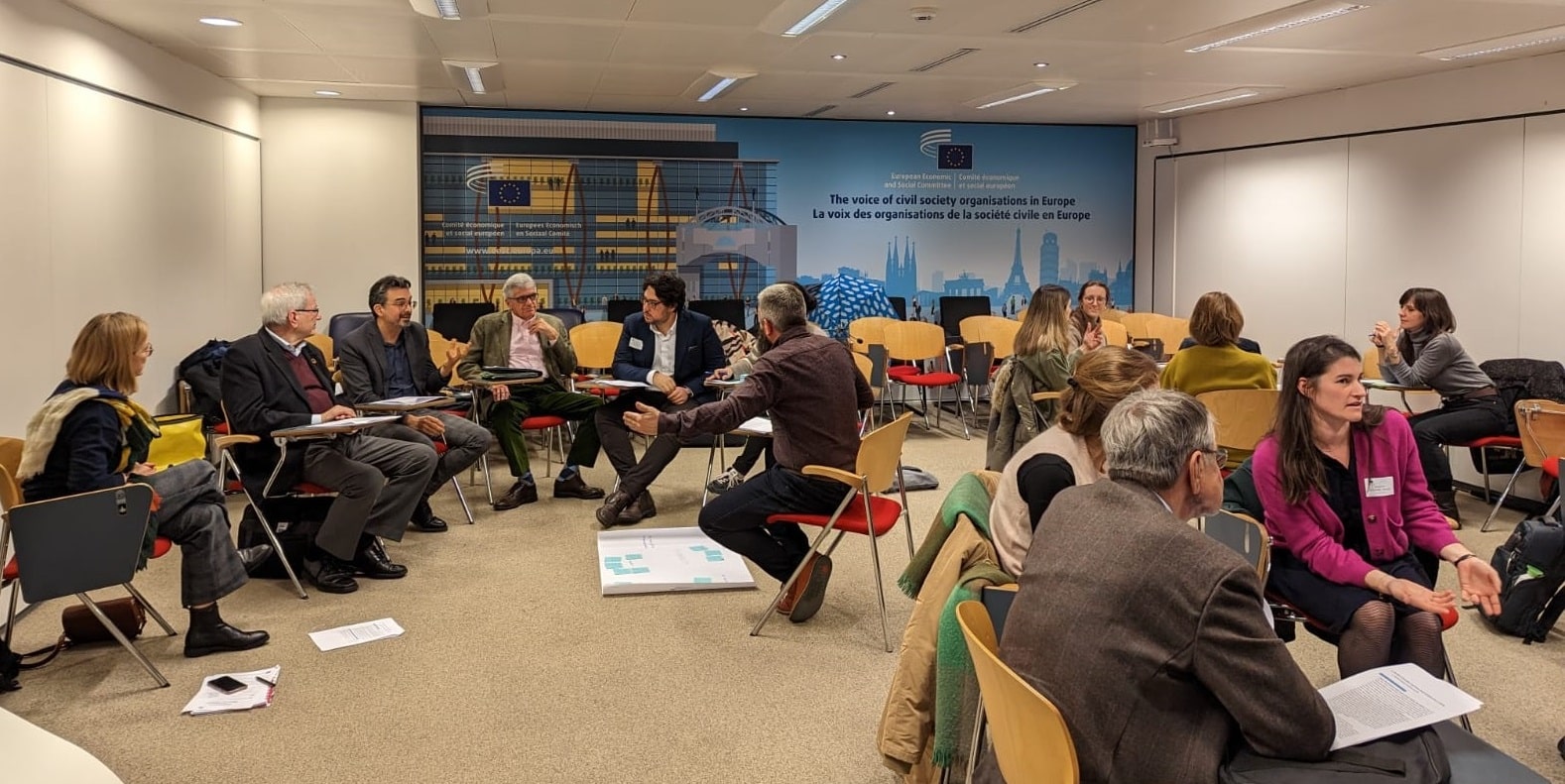
On 14 March 2023, AGE organised a workshop in partnership with the European Economic and Social Committee (EESC) to discuss the policy recommendations of the InAdvance project with AGE members and EU stakeholders.

The policy recommendations aim to create awareness of the need to provide earlier palliative care to older people who need it. They are based on the firsts results of the InAdvance project with a specific focus on the results obtained in the pilot sites and a consultation with AGE members in 2022.
An overlooked type of care
These recommendations are drafted in the context of the EU Care strategy and its recommendations on affordable high-quality long-term care adopted by the Council of the EU in December 2022. The long-term care recommendation proposes actions for Member States to make care more accessible, affordable and of better quality but it does unfortunately not mention palliative care specifically.
The framework for the workshop was provided by Ms Zoe Tzotze-Lanara, Greek member of the EESC and rapporteur of the EESC’s Own-Initiative Opinion on the “Health Workforce and Care Strategy”, as well as co-rapporteur on the “European Care Strategy”. Ms Tzotze-Lanara highlighted in her speech how the European Care Strategy’s cohesive framework for EU Member States will lead to upward convergence. She also emphasized that providing accessible, available, affordable and inclusive care is a litmus test for social rights, for human rights in Europe, and the success of the EU Care Strategy.
The policy recommendations drafted by the InAdvance project are very well in line with the points highlighted by Ms Zoe Tzotze-Lanara and are structured according to the following topics:
- Palliative care is neither available nor accessible for all;
- Education and public awareness about Palliative Care is lacking;
- Non-person-centred care leads to late identification of needs;
- Fragmentation and discontinuity of care;
- Cost-effectiveness of early admission to Palliative Care;
- Diverse legal context in Europe.
Participatory process
The recommendations were discussed in small groups in a round table format, allowing every participant to provide their feedback on each topic. The active participation of AGE members and EU stakeholders provided valuable feedback, namely on the inclusion of palliative care into the long-term care strategy, and insights on palliative care from different perspectives, such as, for example, the importance of psychological support for both patients and informal carers. This input will be integrated in the final version of InAdvance policy recommendations.
Contact







